ILGA-Europe Statement: Turkey is detaining LGBTI+ activists and journalists, and targeting basic rights
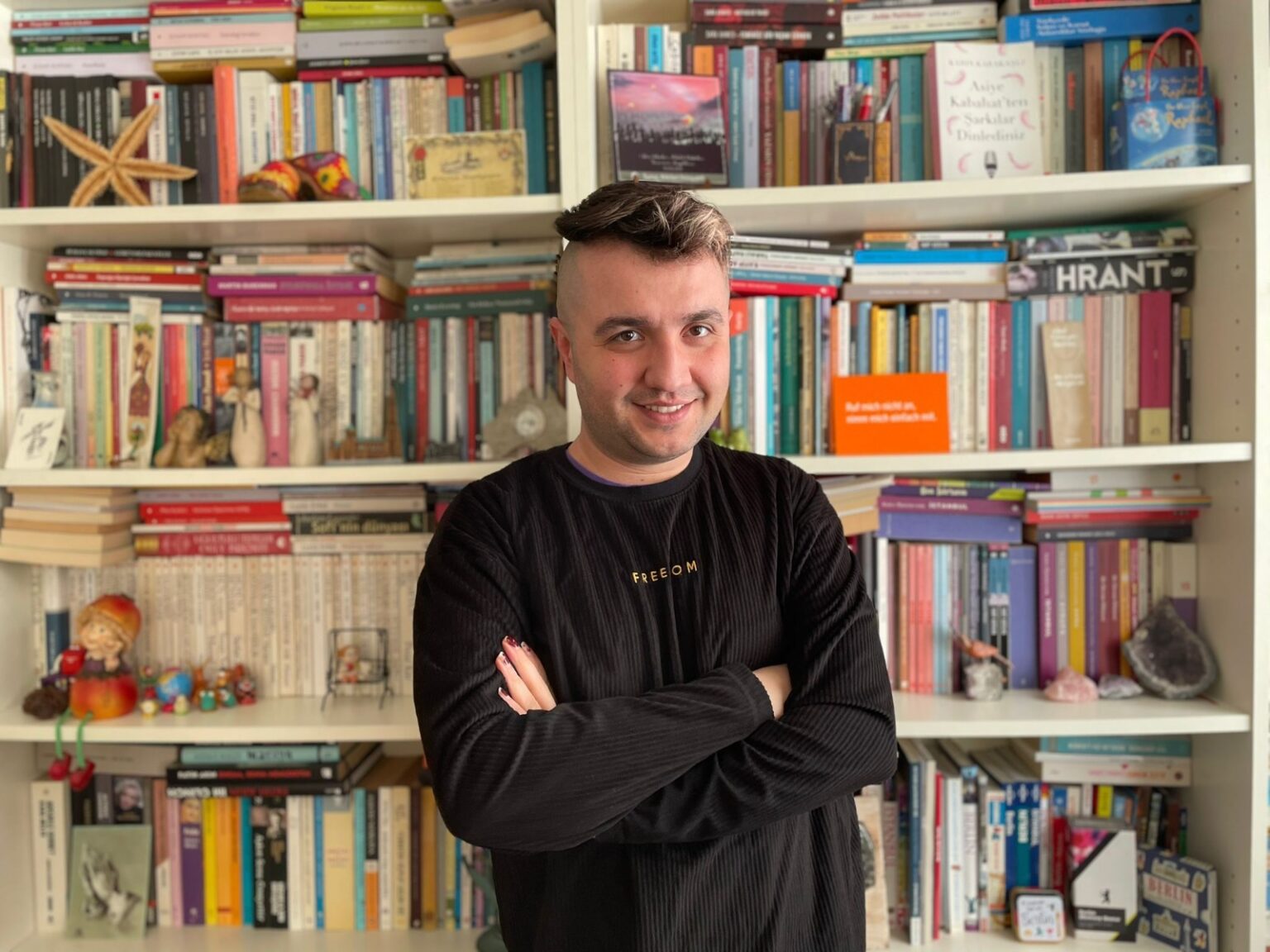
The Turkish government has intensified its repression of LGBTI+ human rights defenders, detaining activists and introducing draconian laws that further restrict legal gender recognition, trans healthcare, and free expression. The proposed measures mirror anti-LGBTI+ laws in Russia and Hungary, prompting urgent calls for action.
The last two weeks have seen an increasingly severe crackdown on LGBTI+ human rights defenders and activists in Turkey. This comes during a time when the Turkish government is eroding civic rights and freedoms, including detaining journalists, opposition politicians, and targeting civil society organisations (CSOs) through smear campaigns and further restrictive legislation.
On 18 February, journalist and Editor-in-Chief of KaosGL.org, a news portal dedicated to LGBTI+ issues, Yıldız Tar, was arrested and accused of “membership in a terrorist organisation”. They were arrested alongside a number of journalists, activists (including Erkin – a trans activist), artists and opposition MPs, amounting to 52 arrests that day.
The following week, on 27 February, draft amendments of the Turkish government were leaked to the press which aim to amend the Criminal and Civil Codes to further restrict access to legal gender recognition and trans-specific healthcare, ad criminal sanctions to these as well as criminal sanctions for “any person who publicly encourages, praises or promotes attitudes and behaviors contrary to innate biological sex and public morality” and “persons of the same sex [who] perform an engagement or marriage ceremony”.
The further restrictions to accessing legal gender recognition are:
- Increasing the age of eligibility from 18 to 21.
- Reintroducing mandatory sterilisation (a provision previously annulled by the Constitutional Court and found to violate the European Convention of Human Rights by the European Court of Human Rights (ECtHR)).
- Introducing a lengthier process for approval, requiring an official medical board report to be issued by a “full-fledged training and research hospital designated by the Ministry of Health as a result of four evaluations to be made at least three months apart” (previously it was to be obtained from a training and research hospital), with no maximum duration set, potentially allowing indefinite delays.
Additionally, a new requirement for accessing trans-specific healthcare is introduced, stipulating that it can only be carried out after permission is obtained from one of the above-described hospitals designated by the Ministry of Health.
The criminal sanctions being introduced include sentences of:
- 3-7 years imprisonment and a judicial fine from 1,000-10,000 days for anyone who commits gender reassignment surgery contrary to the new provisions, with the recipient of the surgery facing 1-3 years imprisonment.
- 1-3 years imprisonment for “Any person who publicly encourages, praises or promotes attitudes and behaviors contrary to innate biological sex and public morality”.
- 1.5-4 years imprisonment for “persons of the same sex [who] perform an engagement or marriage ceremony”.
These new legislative restrictions will further restrict the already inaccessible process of legal gender recognition and access to trans-specific healthcare in Turkey (see our previous statement regarding this), making legal and medical transition nearly impossible.
The requirement for mandatory sterilisation and medical certification in order to access legal gender recognition has already been deemed abusive by international human rights bodies. ECtHR case law is clear that such requirements are in violation of the right to privacy and the right to bodily integrity. The Parliamentary Assembly of the Council of Europe (PACE) has called on its member states to “develop quick, transparent and accessible procedures, based on self-determination”. The UN Independent Expert on Protection Against Violence and Discrimination Based on Sexual Orientation and Gender Identity has also recommended that legal gender recognition should be based on self-determination, be a simple administrative process, and not require applicants to fulfil abusive requirements such as surgical interventions or requiring medical certification.
A clear discriminatory attack
The new proposal for criminal sanctions for anyone “who publicly encourages, praises or promotes attitudes and behaviors contrary to innate biological sex and public morality” will impact ordinary people wishing to dress or be called in a way that is different from their biological sex assigned at birth, but also it will also target any debate, awareness raising, or portrayal of topics related to challenging gender binarism, which will impact LGBTI+ people, LGBTI+ CSOs, journalists, and other organisations or people defending freedom of expression.
The criminalisation of symbolic engagement and marriage ceremonies represents a clear discriminatory attack against the LGBTI+ community, who simply wish to honour their partnerships and love in a country where there is no possibility for a legal recognition of same-sex relationships.
The proposals’ provisions are similar to the anti-”LGBTI propaganda” laws seen already in Russia, Hungary and Bulgaria. The European Court of Human Rights has already ruled the Russian law to violate freedom of expression and the prohibition of discrimination, and the EU has launched infringement proceedings against both Hungary and Bulgaria for their laws.
ILGA-Europe calls on the Ministry of Justice to indefinitely withdraw the draft amendments and the Turkish parliament to reject the proposed legislative amendments, which introduce further discrimination against the LGBTI+ community, run contrary to international fundamental rights standards and decisions of Turkey’s Constitutional Court, and which will make the lives of LGBTI+ people in Turkey even more arduous, without providing any additional benefits to the general public.
We call on the Turkish government to immediately release Yıldız Tar and stop crackdowns on legitimate civil society organisations, journalists and others forming part of democratic checks and balances.
The Turkish government should ensure that everyone is equal under the law, and introduce provisions granting equality in line with the jurisprudence of the European Court of Human Rights, including non-abusive and accessible access to legal gender recognition, trans-specific healthcare, legal recognition of partnerships and the right of all to freedom of expression and information.
How you can help
Bring attention to these developments via media and social media:
- Demand the immediate release of Yıldız Tar and Erkin
- Speak out against the crackdown on CSOs, journalists and human rights defenders
- Speak out against the proposed anti-LGBTI+ legislation
Read our press release here.
New Era of Coordinated Attacks on Foundations of Fundamental Rights, European Report Finds
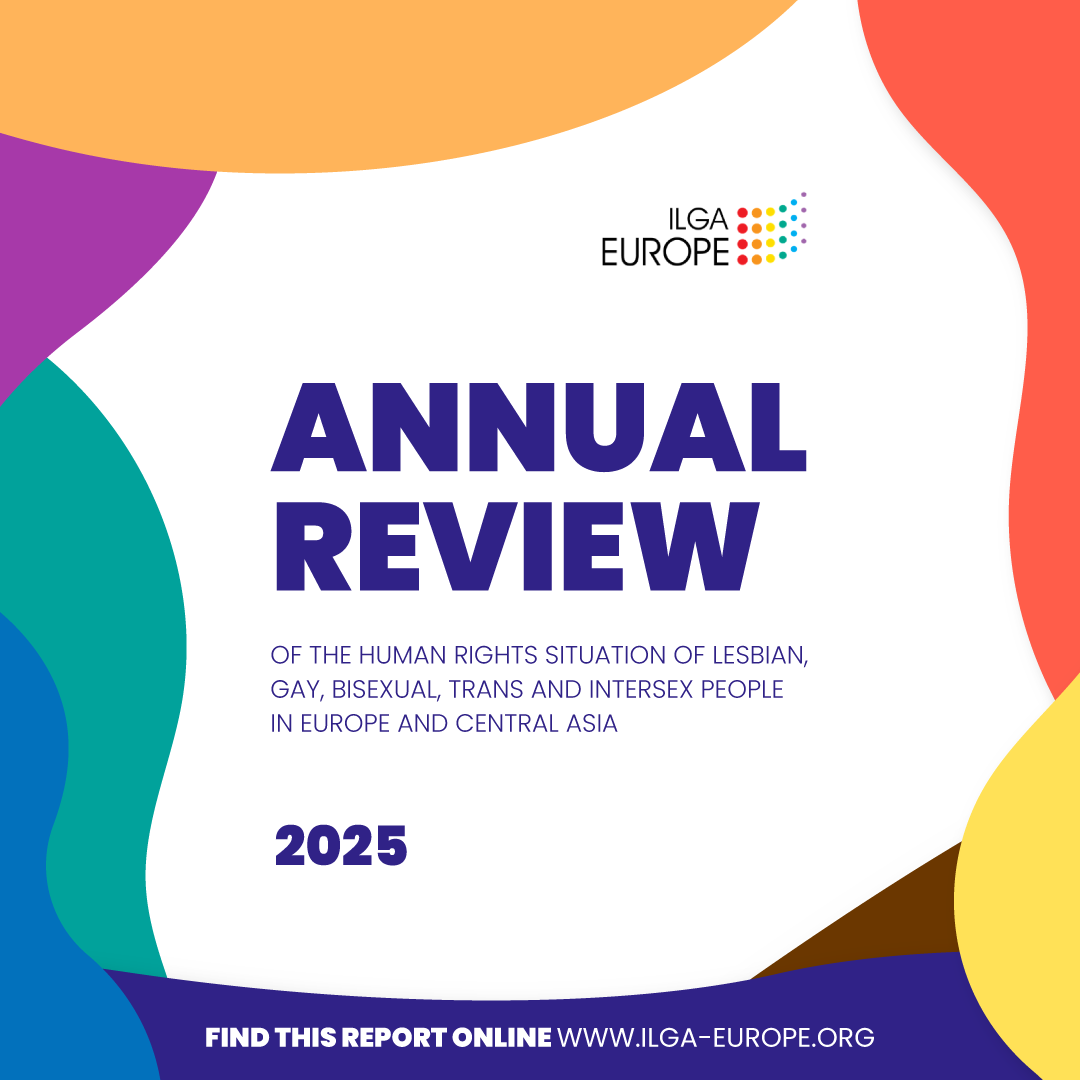
A major report published today identifies how LGBTI people are being weaponized to erode the foundations of freedom and democracy across Europe.
Released today, February 18, 2025, ILGA-Europe’s ‘Annual Review of the Human Right Situation of LGBTI People in Europe and Central Asia’ warns of a new era in which rising anti-LGBTI legislation threatens fundamental rights. Governments are fueling anti-LGBTI sentiment to push laws that restrict freedom of expression, association, and fair elections.
Governments are increasingly adopting tactics similar to Russia’s, forcing NGOs to register as ‘foreign funded’ to undermine their legitimacy, restrict funding, and stifle human rights activism. Known as ‘foreign agent’ laws, these measures are framed as protecting families and traditional values while often specifically targeting LGBTI NGOs. Last year in Bulgaria, Georgia, Hungary, Kyrgyzstan, and Montenegro, proposed foreign agent laws posed a direct threat to civil society.
Such legislation is enacted with or in the wake of so-called ‘LGBT propaganda’ laws that seek to criminalise visibility of LGBTI people, ban content, silence activists and restrict freedom of assembly, which have been either discussed, proposed or adopted in seven countries (Azerbaijan, Belarus, Bulgaria, Georgia, Kazakhstan, Romania, and Slovakia). These laws have been increasingly leveraged in education sectors, restricting or entirely preventing the inclusion of LGBTI issues in curricula and awareness-raising initiatives. In addition, attempts to introduce legislation excluding LGBTI topics from sex education were recorded in Bulgaria, Hungary, Italy, the Netherlands, Luxembourg, Norway, Romania, Russia and Slovakia.
In this context, LGBTI-phobic hate speech, sexism and misogyny are increasingly normalised, often fuelled by public figures, including political and religious leaders and state institutions. This is in turn driving an unprecedented surge in violence as hate crimes have reached record levels across the region.
The normalisation of hate is also providing justification for the blocking of healthcare for trans people. Andorra, Georgia, Hungary, Ireland, Moldova, Romania, Russia, and the UK have all put in place new barriers to care. Following the UK Cass Review, efforts to restrict trans healthcare for minors have emerged in Austria, France, Italy, Ireland, Poland, and the UK, putting trans lives further at risk.
As an increasing number of governments crack down, LGBTI people are being forced to flee—but Europe is closing its doors. Russia, Kyrgyzstan, and Turkey are intensifying persecution, and Turkmenistan is entrapping and torturing LGBTI individuals. Yet, many European countries, including Austria, Belgium, Bulgaria, Ireland and the UK, are denying asylum claims based on outdated, arbitrary assessments, with some officials rejecting applicants for not ‘seeming LGBTI enough.’
According to ILGA-Europe’s Executive Director, Chaber: “This report confirms what many of us have feared—we are entering a new era where LGBTI people have become the testing ground for laws that erode democracy itself. Across Europe and Central Asia, governments are using anti-LGBTI rhetoric to justify restrictions on free speech, civil society, and fair elections. What begins as an attack on LGBTI rights rapidly grows into a wider assault on the rights and freedoms of all individuals in society. This is not just an LGBTI issue; it is a crisis for human rights and democracy as a whole.”
ILGA-Europe’s Advocacy Director, Katrin Hugendubel added: “While governments are increasingly scapegoating LGBTI people to push restrictive laws, the courts both in the EU and across Europe are in turn upholding LGBTI human rights, with key judgements on procedures for LGBTI asylum seekers, anti-LGBTI hate speech, freedom of association and expression, legal gender recognition, and sexual and reproductive rights. But at this critical time, our leaders cannot simply leave the protection of human rights to the courts. Politicians at both the European and national levels must act decisively to counter the growing attacks on the cornerstones of democracy we are seeing. The normalisation of anti-LGBTI rhetoric is not just a threat to one community—it is now a proven direct assault on the democratic principles that underpin our societies.”
Further Information
Download a full analysis of the trends here
Read the ILGA-Europe’s Annual Review here
See up-to-date legislative developments in each country with ILGA-Europe’s Rainbow Map
Joint statement on the decision to ban puberty blockers for trans youth in the UK
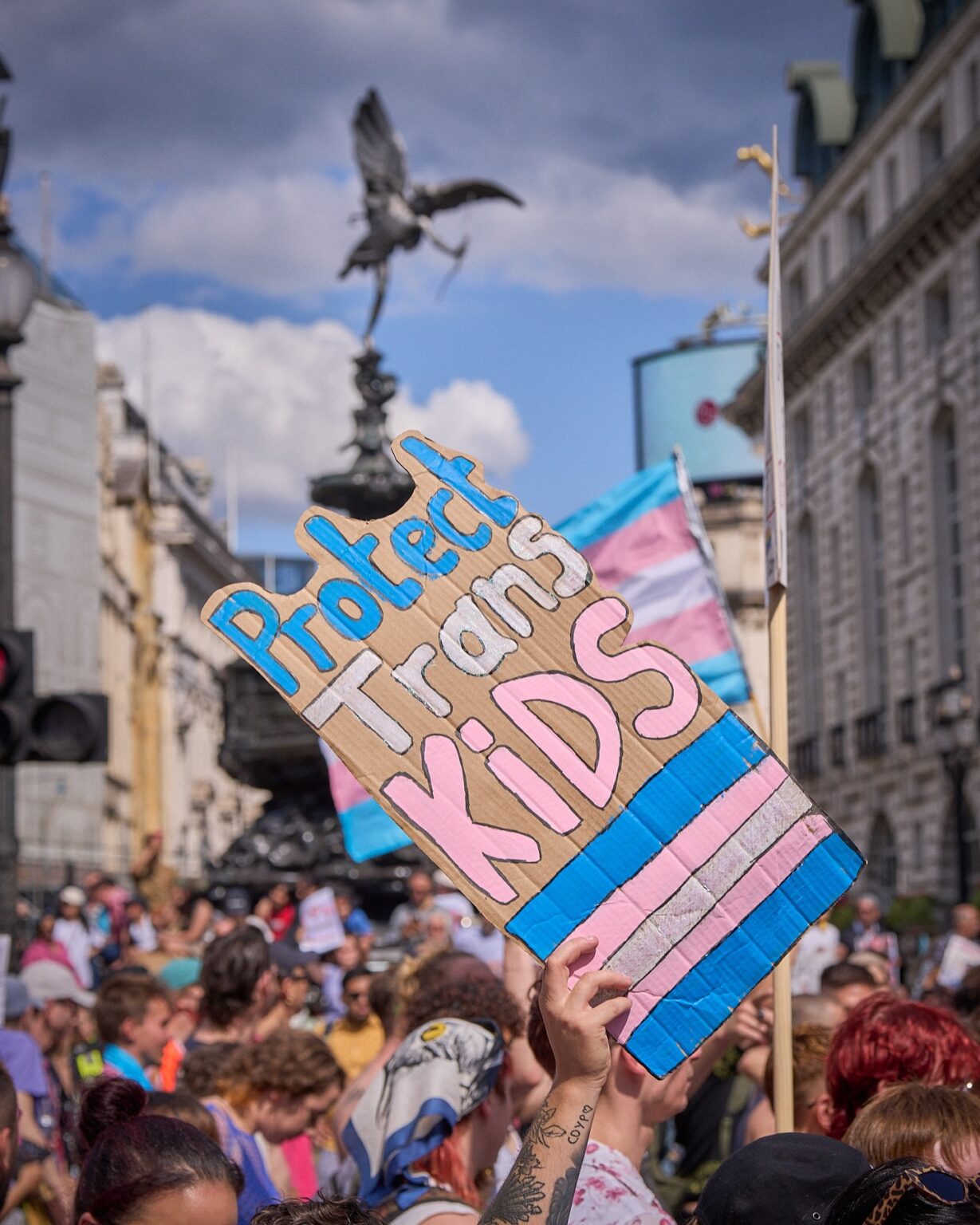
The recent decision to indefinitely ban the private prescription of puberty blockers for trans youth in the UK marks a profoundly troubling development in the ongoing struggle for the rights of trans people and access to necessary, life-saving and evidence-based healthcare.
In the UK, where no form of trans-specific healthcare is currently available for minors through the NHS and waiting lists have reached six years, the government’s decision to ban the private prescription of puberty blockers for trans youth constitutes a de facto ban on puberty blockers. This decision, which overrides years of established medical guidance and expertise, is deeply political, rooted in a divisive public discourse and misinformation rather than the recommendations of leading medical authorities. It threatens the well-being of vulnerable trans youth, whose lives depend on timely, supportive, and individualised healthcare.
ILGA-Europe, IPPF European Network, TGEU, IGLYO, and The Kite Trust call on the UK government to reconsider this harmful decision and to engage meaningfully with both the medical and scientific community and civil society groups representing the interests of trans youth and trans adults.
The framing and justification for this ban have leaned heavily on a polarised and often misleading public narrative about trans identities and related trans healthcare and epistemologically, and methodologically questionable studies about trans identities and trans-specific healthcare. Despite claims of prioritising child safety, this decision disregards the consensus of medical professionals and organisations such as the World Professional Association for Transgender Health (WPATH) and the Endocrine Society’s Clinical Practice Guideline, which have long endorsed puberty blockers as a safe and reversible option for managing gender dysphoria in minors. These treatments allow young people experiencing distress with their assigned gender to pause puberty, giving them time to better understand their needs and identity, without the added pressure of physical changes brought on by puberty.[1]
The political instrumentalisation of healthcare for trans minors has become a rallying point for anti-trans rhetoric, which often conflates all trans-specific healthcare with irreversible medical interventions. This characterisation is not only inaccurate but also deeply harmful. Puberty blockers do not lead to permanent medical transition[2] – they are a widely used and reversible treatment prescribed for various conditions, including precocious puberty.[3] By banning them for trans youth specifically, the UK government is singling out a vulnerable group for discriminatory and harmful treatment based on ideology rather than evidence.
Misinformation about the nature and effects of puberty blockers has played a significant role in shaping public opinion and policy. Opponents of trans-specific healthcare frequently cite exaggerated or unfounded claims about the risks of these treatments, ignoring the robust body of research demonstrating their safety and efficacy. Long-term studies show that puberty blockers and other trans-specific healthcare significantly reduce rates of depression and suicidality among trans youth[4] —outcomes that align with broader understandings of the critical importance of affirming care for marginalised populations.
Expert voices, including paediatric endocrinologists, psychologists, and trans health specialists, have been sidelined in favour of rhetoric that frames trans-specific healthcare as controversial. This erasure of medical expertise undermines the principles of patient-centred care and puts the health of trans youth at risk. The decision to ban puberty blockers ignores the individualised, case-by-case assessments that qualified professionals conduct before prescribing such treatments,[5] opting instead for an unyielding prohibition that strips both doctors and families of agency.
The consequences of this ban will be devastating. For many trans youth, the ability to access puberty blockers represents a lifeline. Denying them this care will force young people to undergo the changes of puberty associated with their assigned gender, exacerbating gender dysphoria and increasing risks of mental health struggles, including anxiety, depression, and suicidal tendencies. By removing a critical tool for early intervention, this decision condemns trans youth to unnecessary suffering and places an already marginalised group at greater risk of harm. Furthermore, this policy undermines the trust between trans individuals and the healthcare system. Families seeking support for their children will face increased barriers, uncertainty, and stigma, while healthcare providers may find themselves unable to offer the care they know to be best for their patients. These ripple effects extend beyond trans youth, chilling the broader provision of trans-specific healthcare and reinforcing a climate of fear and hostility.
Trans children and young people deserve safety, understanding, and access to the same standard of care afforded to their peers. Decisions about their healthcare should be guided by medical evidence and the expertise of trained professionals, not by political agendas. The indefinite ban on puberty blockers represents a failure to prioritise the rights and well-being of trans youth, and it sets a dangerous precedent for further erosion of the rights of LGBTI persons in the UK.
We urge policymakers to reconsider this harmful decision and to engage meaningfully with both the medical and scientific community and civil society groups representing the interests of trans youth and trans adults. Upholding the dignity and humanity of trans youth requires a commitment to evidence-based healthcare, free from the distortions of ideology and misinformation. Only by centering the voices and needs of trans youth can we hope to build a society that values and protects all its members.
Signatories
- ILGA-Europe
- IPPF European Network
- TGEU
- IGLYO
- The Kite Trust
[1] Cal Horton, Experiences of puberty and puberty blockers: Insights from trans children, trans adolescents, and their parents, Vol. 39(1), Journal of Adolescent Research, available at: https://journals.sagepub.com/doi/full/10.1177/07435584221100591v.
[2] Hannema et al, Endocrine management of transgender and gender diverse adolescents: expert opinion of the ESPE Working Group on Gender Incongruence and the Endo-ERN main thematic group on Sexual Development and Maturation, available at: https://pubmed.ncbi.nlm.nih.gov/39622214/.
[3] Giordano & Holm, Is puberty
delaying treatment ‘experimental treatment’?, Vol 21(2) International Journal of Transgender Health (2020).
[4] Van der Miesen et al, Psychological Functioning in Transgender Adolescents Before and After Gender-Affirmative Care Compared with Cisgender General Population Peers, Vol 66(6) Journal of Adolescent Health (2020); Olson et al, Mental Health of Transgender Children Who Are Supported in Their Identities, Vol 137(3) Pediatrics (2016); Nath, R., Matthews, D.D., DeChants, J.P., Hobaica, S., Clark, C.M., Taylor, A.B., Muñoz, G. (2024). 2024 U.S. National Survey on the Mental Health of LGBTQ+ Young People. West Hollywood, California: The Trevor Project. www.thetrevorproject.org/survey-2024.
[5] Cass, Hilary (2024), Independent review of gender identity services for children and young people: Final report, pp. 168-169, available at: https://cass.independent-review.uk/home/publications/final-report/
New regulations pose greater risks to trans people in Turkey
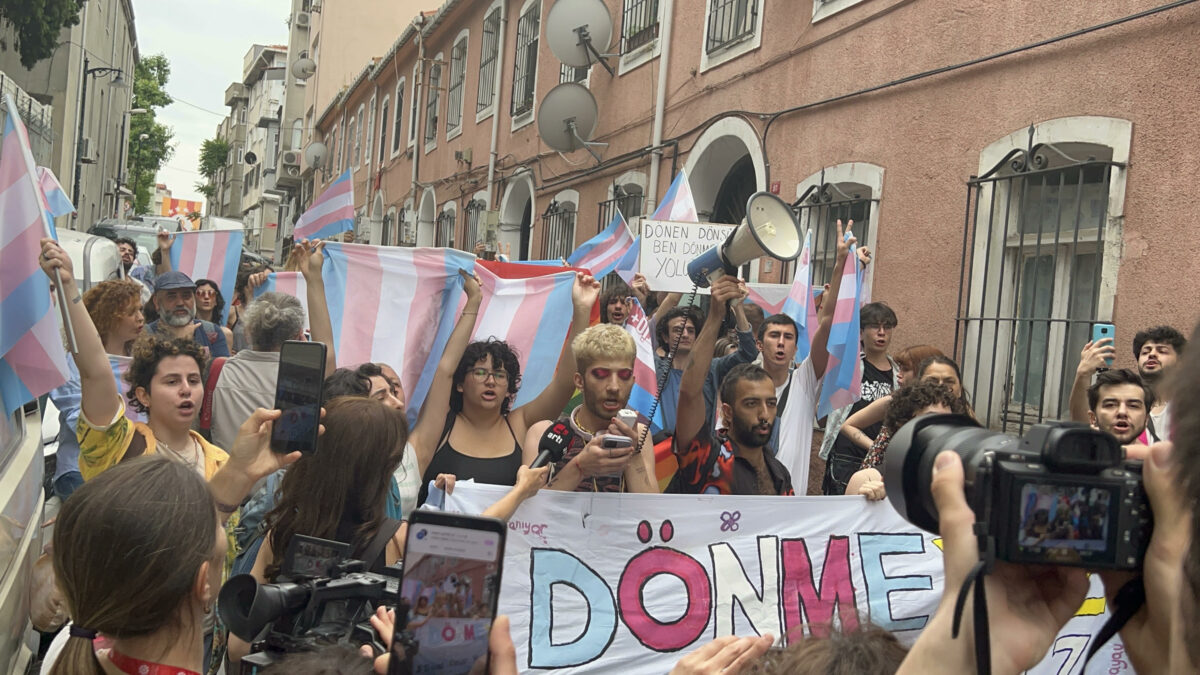
New changes from the Turkish authorities to the accessibility of hormones for trans people further threaten health and lives
On 20 November, the Turkish Medicines and Medical Devices Agency announced a new regulation that requires an e-prescription to access certain hormones used by trans people. The restrictions regulate access to hormones used mainly by trans masculine people as well as hormones used to treat diabetes. The two hormones under this new regulation used by trans women are also the same hormones used by cis women for birth control. This regulation therefore not only impacts trans people but also cis women and people with diabetes.
The new regulation exposes the pre-existing inadequacies in access of trans persons to healthcare services. While the regulation can be seen as an attempt to regularise the process of distribution and use of hormones, making the procurement and treatment safer for users, the Turkish healthcare system is extremely inaccessible for trans people, in particular as regards trans-specific healthcare. As a result, this new regulation will have severe consequences for trans people.
Currently in Turkey university research hospitals are the only hospitals that have specific gender transition councils which assess and provide a medical report for trans persons, which doctors then use to prescribe the necessary hormones. However, these hospitals are only available in 13 of the 81 provinces (usually those with major cities), resulting in those trans people living in rural areas having to travel to one of these 13 provinces. The journey time is usually long, and appointment availability is scarce, making such trips less affordable and accessible. For those who already live in major cities, it is still difficult to access the healthcare system as appointments are rarely available due to high demand – it can take several months to secure a first appointment. Subsequent appointments also have a similar waiting time. In total, it takes a minimum of six months to receive the necessary report for accessing hormone prescriptions. It is time and resource-intensive, and transphobia is often encountered along the way.
Hormones are a key part of trans-specific healthcare for many trans people – they impact not only physical traits but also frequently psychiatric health and wellbeing. For trans persons who have had their gonads removed, hormones are critical for good physical health, as stopping hormone therapy can lead to osteoporosis, among other things.
As a result, this new regulation will have severe negative consequences for the healthcare and mental health of trans people across Turkey, in particular trans masculine people and trans people in poverty. Many trans people will no longer be able to access these hormones, and some will even turn to unregulated pathways to procure them, which can result in health risks and exorbitant prices.
For such a prescription regulation to produce positive effects, the Turkish healthcare system needs to be restructured in such a way as to ensure that trans people can access healthcare in hospitals in all areas of the country. Trans-specific healthcare needs to be more widely provided and understood so that the current high demand can be met, with medical professionals ensuring the right to health of each patient, without discrimination.
More broadly, Turkey should uphold the case law of the European Court of Human Rights on legal gender recognition under Article 8. It should introduce a new legal framework that is quick, transparent and accessible with no requirements for invasive surgeries, and wide access to trans-specific healthcare. It should comply with the World Health Organisation’s 11th revision of the International Classification of Diseases which depathologises trans people in all areas of life.
Recent incidents of limitations on the right to freedom of assembly for LGBTI people in Turkey
On 20 November police blocked a demonstration to commemorate victims of transphobic violence in Ankara on the International Trans Day of Remembrance, and arrested four people, including a member of the Ankara Bar Assocation.
On 23 November police intervened in a demonstration by trans activists in Istanbul against the new e-prescription regulation, detaining 38 people. They were released after providing statements to the police.
On 25 November – The International Day for the Elimination of Violence Against Women – hundreds of people took to the streets in cities across the country, and were met with police repression in many cases. In particular, in Istanbul, the Governor’s Office banned all protests and demonstrations on the specified date, and police interventions resulted in 169 arrests. All of those arrested have since been released, apart from two LGBTI+ people from Azerbaijan, who were taken to repatriation centres. Due to the severe conditions and ill-treatment they were subjected to, including being deprived of food and medications, they were forced to “voluntarily return” to Azerbaijan. One of them was an LGBTI+ human rights defender from Azerbaijan who immigrated to Turkey due to being at risk of arrest in their country.
In Turkey LGBTI+ people are regularly subjected to arbitrary detention (often with excessive police force) and charged for participating in public events, or for holding rainbow flags in the public space. Public demonstrations are frequently banned or postponed under the pretext of “national security”, “public order”, “prevention of crime”, “protection of public health” or “public morals”, with police and governors excessive powers. These practices which include vague limitations on public assemblies allowing for arbitrary interpretation, breach Turkey’s own Constitution (Article 34) and the European Convention on Human Rights (Article 11) to which Turkey is party. Turkey should bring its practices in line with the ECHR and its own Constitution, halting arbitrary banning of protests and detention of participants.
European court hears landmark case on trans rights in Hungary
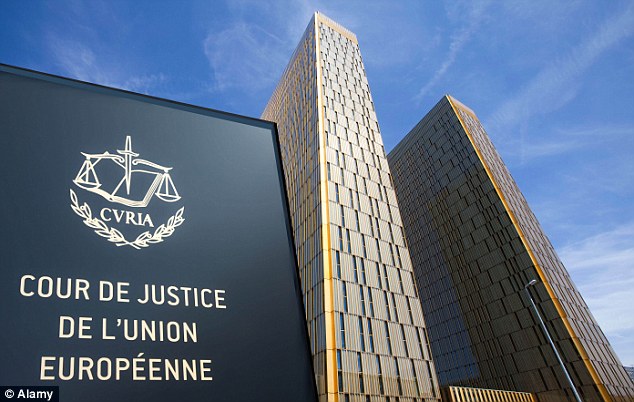
The Court of Justice of the European Union held a significant hearing today concerning legal gender recognition for trans people in Hungary
Today, the Court of Justice of the European Union (CJEU) heard the case Deldits (C-247/23), which involves a trans refugee in Hungary who has been denied legal gender recognition (LGR) since 2021. Represented by Háttér Society and the Hungarian Helsinki Committee, the complainant, who was granted refugee status Hungary in 2014, has sought judicial review under Article 16 of the EU’s General Data Protection Regulation (GDPR).
This case raises crucial questions for the CJEU: whether GDPR mandates the rectification of personal data, including gender marker, upon request; what evidence is necessary to support such requests; and whether medical or surgical interventions must be proven.
In addition to the European Commission and advocacy groups, the governments of Hungary, France, Spain and the Netherlands participated in today’s hearing, highlighting its broader implications for LGR in Hungary.
The Budapest-Capital Regional Court’s referral to the CJEU marks a pivotal moment in the ongoing battle for trans rights in Hungary. Despite the 2018 Constitutional Court decision and the 2020 European Court of Human Rights judgement affirming these rights, the Hungarian legislature has yet to implement necessary changes. LGR for both refugees and Hungarian citizens has been banned since 2020.
According to Katrin Hugendubel, Advocacy Director at ILGA-Europe: In its final judgment, the CJEU will have the opportunity to address the discrimination faced by trans EU citizens when a gender marker that does not correspond to their gender identity is recorded in the national registrars. The case is of the utmost importance to protect the rights of trans citizens in Hungary and across the EU, notably in the context of the Hungarian ban on legal gender recognition.
The opinion of the Advocate General is expected on 12 September 2024. The CJEU’s decision is anticipated later in the autumn, and it holds significant potential to influence the legal framework for trans rights within Hungary and the broader EU.
ILGA-Europe, alongside Transgender Europe (TGEU), are providing support to Háttér Society in this case.
Read the press release by Háttér Society here.
Why cancer is disproportionally affecting LGBTI people
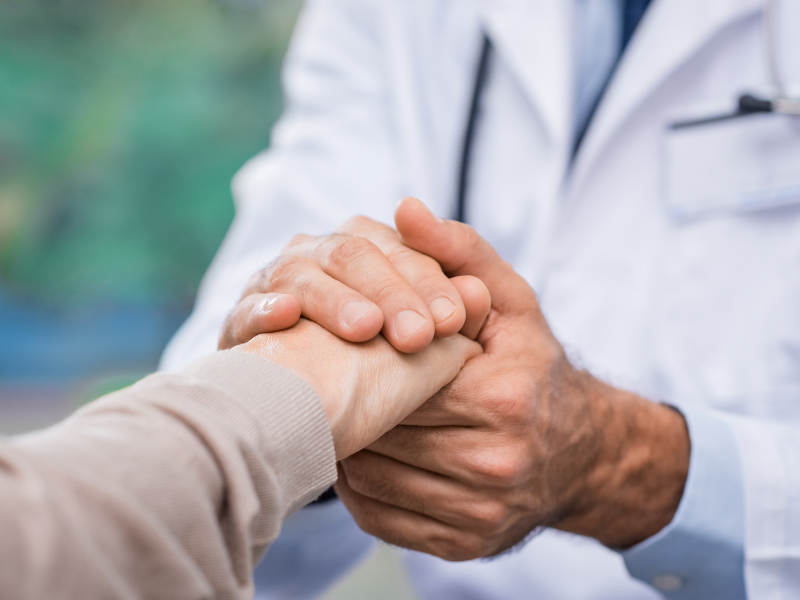
People are affected by cancer no matter what their identity is, but barriers in access to screening, prevention, and treatment puts LGBTI people at increased risk of developing fatal cancers. Keep reading to learn what can be done, so that no one is left behind in the fight against cancer.
Cancer is the second most common cause of death in Europe. With more than 3.7 million new cases every year, cancer prevention and screening programmes are crucial, yet LGBTI people are left lagging behind when it comes to this.
“The cancer community has recognised that the LGBTIQ+ community has historically been marginalised within the healthcare system, which translated into some discrimination, exclusion and unequal treatment in cancer care,” says Mike Morrissey, CEO of the European Cancer Organisation with whom we have been working together.
“This can often be caused by a lack of awareness of the specific needs of the community, policy guidelines that need updating to address the needs of marginalised communities, and the lack of inclusive language in both health documentation and medical check-ups, to name a few examples,” Morrissey adds.
Moving away from gendered language
Trans, intersex, non-binary and third gender people exist in Europe, but are left out when screening, prevention and treatment use binary categories to determine risk factors and eligibility. To put it more plainly, when your body doesn’t fit the binary boxes of ‘female’ or male’, this means that you may not receive the cancer care that your body needs.
Access to health services should be dictated by a person’s body parts and what their organs require to stay healthy. For example, when stating ‘women require mammograms’, we are leaving out those who are not women but are at the same risk of developing breast cancer. Moving away from gendered language in cancer prevention plans and instead referring to specific body parts, will ensure than trans, intersex, non-binary and third gender people can access to the screenings and treatment their bodies need.
Increased risk and lack of prevention for LGBTI people
Some studies suggest higher cancer rates for LGBTI people. While research into the reasons behind this greater prevalence is still too limited, we know that LGBTI people access routine healthcare less frequently than others. Some of the reasons are:
Fear of discrimination
Have you ever worried about talking about your sexual orientation, your sexual experiences, your gender identity, or your sex characteristics to your doctor because you are unsure if you will be treated the same way after you have shared this information? You are not alone. Fear of being discriminated against often prevents LGBTI people from sharing relevant information that could affect their health.
Limitations in access
Many LGBTI people encounter barriers in access to employment or education. These barriers prevent them from accessing healthcare too, and can prevent them having adequate health insurance coverage.
Negative experiences with healthcare providers
It is difficult to reach out to someone when you anticipate an uncomfortable time with them. Fear of having a negative experience with a healthcare provider can lead some LGBTI people to delay or avoid medical care, especially routine care such as screenings for early detection. Missing routine cancer screenings can lead to cancer being diagnosed at a later stage, when can be harder to treat.
Misinformation about cancer risks
Trans and intersex people in particular have historically been exposed to significant human rights violations in healthcare settings. For example, many trans and intersex people report non-consented or coerced gonadectomies wherein the “risk of cancer” was used as a motivator to encourage them or their parents to “consent” to the surgery. This brings further distrust of healthcare providers when it comes to discussions of cancer risks and treatments.
This is why any EU or national plans against cancer must ensure that LGBTI people will receive the screenings and treatments they need, when they need them, and with equal coverage under insurance schemes. As Mike Morrissey states, “the European Cancer Organisation could not achieve its mission to improve outcomes and quality of care for all cancer patients, if one specific marginalised community is not included in the advancements of the cancer community at large. It is therefore of utmost importance for us to bring together the cancer community and guide the effort in fighting for equity for all citizens and cancer patients regardless of their background.”
You can check out our latest feedback to the European Commission and more submissions to the EU Cancer Plan and the Cancer Screening Recommendation.
Monkeypox: Why global equity must be central to contain the spread and how it can be achieved
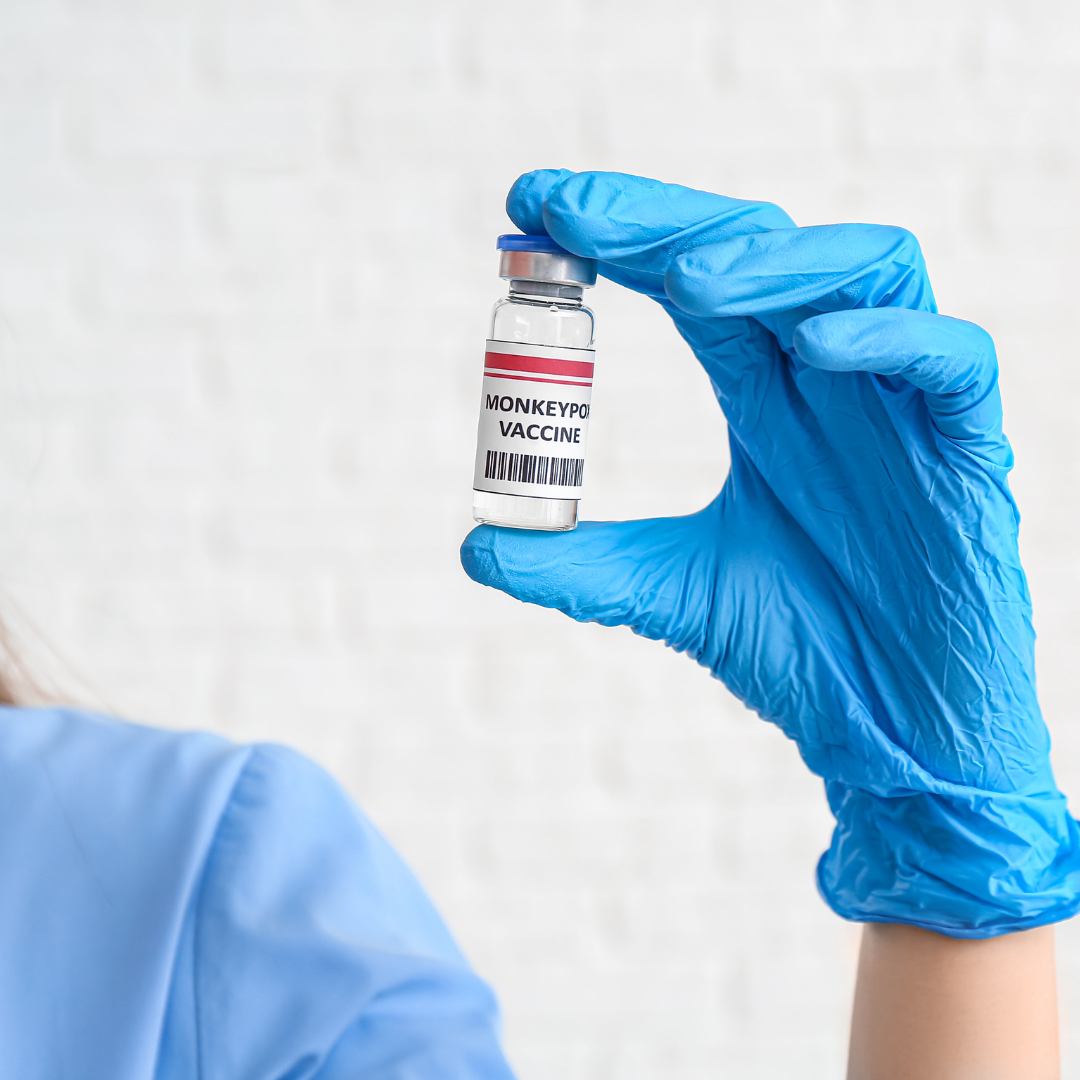
Over 18,000 cases of monkeypox have been confirmed in the EU since the start of the outbreak in the region in May. Humanitarian organisations, governments and institutions must join forces and put equity at the centre of their thinking so treatments and prevention measures are available for all.
By the end of August, 18,072 confirmed cases of monkeypox have been reported from 29 EU/EEA countries, according to the ECDC, and 46 cases have been reported in the Western Balkans and Turkey. The first cases were registered in early May. Globally, over 48,000 cases have been confirmed since January 2022, according to WHO.
Who can get infected and how?
Monkeypox is transmitted by skin-to-skin contact of any kind, contact with contaminated clothing and fabrics, and by aerosol droplets; the current European and North American outbreak appears to be closely, though not exclusively, linked to sexual practices as well. There are right now specific outbreaks among men who have sex with men (MSM): over 95% of the reported cases in the world are linked to this practice.
Even so, anyone can contract the virus if they engage in risky practices with people who are potentially infected and sexual contact among men is not the only mode of transmission. The risk of infection comes from practices, not identities. This is important to keep in mind, not only to stay away from stigmatisation of gay and bisexual men communities but also to contain the spread, as we learnt from HIV/AIDS epidemic.
Are there vaccines and treatments?
The European Commission has secured 163,000 doses of vaccines to respond to the progression of the spread of this virus in the EU. Spain, Germany, Belgium, Sweden, Ireland and Italy are among the countries who have already received vaccines.
However, vaccines on their own are no silver bullet, says the WHO:
- 85% is the protection estimated from vaccines, according to the limited data available. Additionally, there is one single manufacturer authorised globally, which will probably mean shortages in supply.
- There are great disparities in distribution in the EU. In July, the European Commission announced an order for over 163,000 doses for all the EU, while countries like France had already purchased 250,000. Spain, with over 6,400 cases is the country with the highest number of cases in the EU, has had to this date only 17,000 doses available. These are examples of disparities in the distribution of vaccines in the EU, but as we learnt in 2020, a virus doesn’t know about borders.
- There are no vaccines at all in Africa. Still, the death-per-case rate in Central and Western Africa is 1 in every 21 cases, which is more than 100 times more than in the global north, less than 1 in every 2,500 cases.
What can institutions and governments do?
- Global public health is a global responsibility where equity is key. Vaccines and treatments must be made available in poor countries as well as in richer ones – this is the only way to ensure that outbreaks like this do not happen and that the virus does not become endemic. Therefore, the vaccine supply must be coordinated among countries and institutions such as the European Commission and the WHO.
- Vaccines are a preventative measure, not a reactionary one. Early diagnosis, contact tracing and exposure limitation measures must come along in order to ensure that the limited supply of vaccines has the largest possible impact.
- At a national level, ministries of health need to coordinate closely with LGBTI and HIV-related organisations to develop communications and outreach materials, as well as with groups organising events where transmission is likely so that they can communities with their communities effectively. In order to this, these groups and civil society must be granted sufficient resources.
- As with the HIV/AIDS epidemic, LGBTI civil society are taking up public health responsibilities to ensure that LGBTI people are effectively protected and served; however, this means diversion of resources from some of the core work of these organisations. Public health institutions must work in equitable, non-discriminatory ways to ensure services of the most vulnerable.
Joint statement on Protecting Abortion Access in Europe

AS the decision by the United States Supreme Court overturning Roe v. Wade, thereby dismantling the US constitutional right to abortion, ILGA-europe joins the center for reproductive rights, alongside many other organisations calling on european decision makers to remove impediments in access to abortion care.
The decision by the United States Supreme Court in Dobbs vs. Jackson Women’s Health Organisation overturns Roe v. Wade, thereby dismantling the US constitutional right to abortion. The decision will have a profound and devastating impact.
As local and global women’s rights, human rights and sexual and reproductive health and rights organisations working in Europe, we express our profound solidarity with the millions of people in the United States whose right to essential reproductive health care has been taken away by this decision and with all of those who have sought
to protect and uphold this right.
How to build a fairer, healthier world during a global pandemic
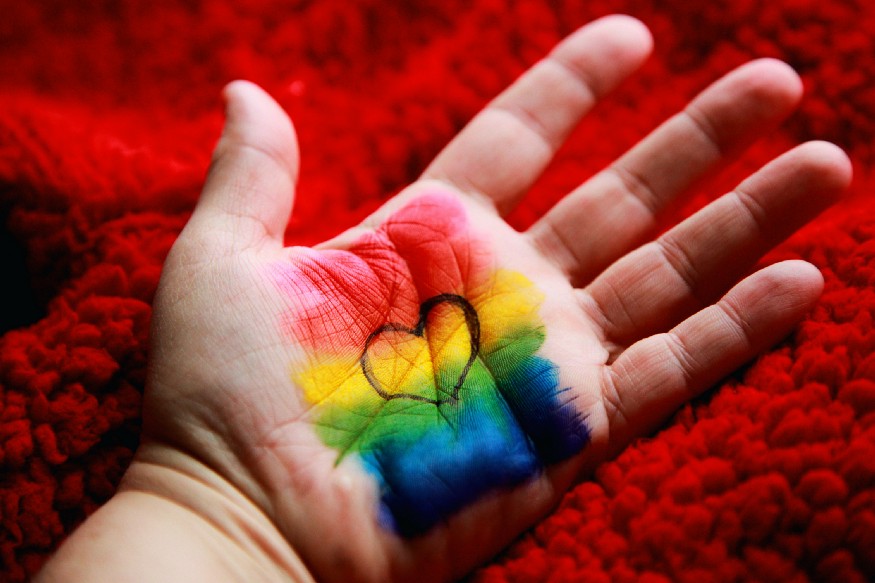
On 7 April, in the midst of an ongoing global pandemic, we celebrated World Health Day with the motto: “Building a fairer, healthier world”. But to make this a reality the voices and needs of the most marginalised, including LGBTI people, must be front and centre. Here is how ILGA-Europe and the Nobody Left Outside initiative are working together to build on this vision.
The COVID-19 crisis has made it clear that nobody is safe until everybody is safe. Health and access to healthcare is one of the seven areas where COVID-19 has hugely impacted LGBTI people, organisations and communities in Europe and Central Asia. Although the corona virus does not discriminate, already marginalised groups have been hit harder by the pandemic and yet remain among the least protected. These vulnerable communities include LGBTI people as well as people experiencing homelessness, undocumented migrants, sex workers, people who use drugs and prisoners.
The Nobody Left Outside (NLO) initiative, with the participation of ILGA-Europe, is a collective of organisations representing some of the most marginalised communities in Europe, for whom access to healthcare is not straightforward. It aims to improve healthcare access for these people and calls on policy makers in the EU, at local and international levels, to take the following critical actions:
1. Establish a knowledge platform
Marginalised groups have specific and intricate healthcare needs. However, specific expertise, research and interventions are limited and scattered across Europe. The European Commission should support the establishment of an EU-level knowledge platform to compile and share research and best practices in healthcare access for marginalised, under-served groups. This should be led by academics active in the field, in close collaboration with civil society networks and organisations.
2. Train health and social care providers
Health and social care providers often lack suitable education to deal with the complex challenges faced by marginalised communities. The European Commission should support healthcare training and capacity building via the European Social Fund+. These programmes should include suitable training to educate and enable all staff providing services for marginalised communities and peer training. They should include training to avoid stigma and discrimination, and aim to reinforce collaboration between healthcare staff and community workers. An inspiring example is Health4LGBTI, an EU funded pilot project aiming at reducing health inequalities experienced by LGBTI people.
3. Implement the NLO Service Design Checklist
The NLO Service Design Checklist helps to design and deliver health and support services that are accessible to underserved and marginalised people. The European Commission should support a pilot programme to evaluate its implementation. You can download the NLO Service Design Checklist here.
4. Support Joint Action
International collaboration between academia, advocacy organisations and healthcare providers is key to driving improvements. EU Joint Actions aim to develop tools, methods and approaches and to build capacity through collaboration. Therefore, the European Commission should support a Joint Action to improve access to health and support services among marginalised and under-served communities, which should include the implementation of guidelines for monitoring and evaluation.
5. Support funding for research into access to cancer services
Some cancers are more common in marginalised groups or have worse outcomes due to delays in diagnosis and access to care. The Horizon Europe research programme mission on cancer should support funding for research to help improve access to cancer screening and care services among people in marginalised underserved communities.
6. Make health core to all policies
Healthcare should not be taken in isolation, but in connection to lifestyle, living conditions and other socio-economic determinants. The European Commission should further prioritise a coordinated approach and consider the impacts of health policies beyond the health sector, such as the Digital Single Market.
Health4LGBTI: Reducing health inequalities experienced by LGBTI people
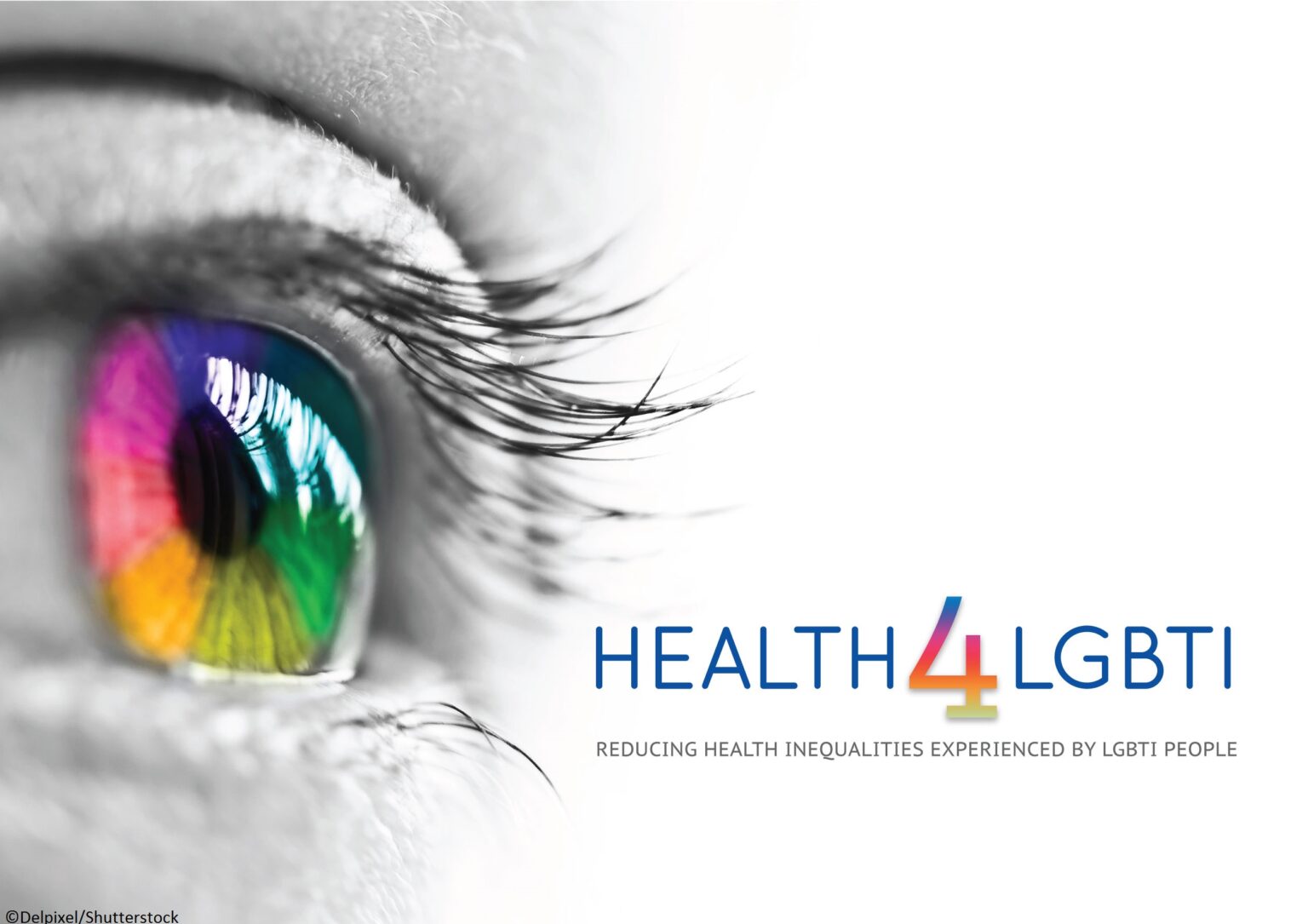
Health4LGBTI is an EU funded pilot project aiming at reducing health inequalities experienced by LGBTI people. It has been implemented between March 2016 and March 2018.
ILGA-Europe was part of the Consortium that under a service contract with the European Commission has explored the health needs and challenges faced by LGBTI people and analysed the key barriers faced by health professionals when providing care for LGBTI people.
General information about the project
The aims of the Health4LGBTI pilot project are to raise awareness of the specific health inequalities and barriers experienced by LGBTI people and to increase understanding of how best to reduce them; focusing on overlapping inequalities stemming from discrimination and unfair treatment on other grounds. The project also aims to provide European health professionals with relevant tools to allow them to develop the right skills and knowledge to overcome these barriers.
The other Consortium partners include AOUI-Verona (Italy, project coordinator), University of Brighton (UK), the National Institute of Public Health – National Institute of Hygiene (Poland) and EuroHealthNet.
For more information, visit the European Commission’s website page about the project.
Project activities
The project explored some of the particular health needs and challenges faced by LGBTI people and analysed the key barriers faced by health professionals when providing care. A variety of activities took place including:
- A state-of-the-art study of the health inequalities experienced by LGBTI people and the barriers faced by health professionals in providing healthcare for LGBTI people;
- 12 focus group studies (2 focus groups in each of the 6 participating EU Member States: Poland, Italy, UK, Belgium, Bulgaria, and Lithuania) to map the barriers faced both by LGBTI people and health professionals;
- The development of a modular training course aimed at increasing the knowledge, attitudes, and skills of healthcare professionals when providing care for LGBTI people;
- The piloting of the training course in the same Member States where the focus groups were conducted, in order to fine-tune and finalise the modules;
- A final European conference, which was part of the dissemination efforts to raise awareness of the topic and of the training course in particular.
Key findings
Although situations vary across Member States, the state-of-the-art study and focus group studies confirmed the existence of health inequalities, barriers, and discrimination LGBTI people experience that have an impact on their health outcomes. Key findings included:
1. Root causes likely to contribute to the health inequalities of LGBTI people are:
- prevailing cultural and social norms that assume people are non-LGBTI by default;
- minority stress associated with an individual’s LGBTI identity;
- victimisation;
- discrimination (individual and institutional), and;
- stigma.
2. LGBTI people face significant mental and physical health inequalities and are at higher risk of poor mental health compared to the general population, including higher incidence of suicidal thoughts, substance misuse, anxiety, and deliberate self-harm.
3. LGBTI people face barriers when accessing healthcare, the most significant ones are:
- prejudicial attitudes and discriminatory behaviour of healthcare staff compounded by their use of heteronormative language and documentation;
- fear surrounding the disclosure of their gender identity, sexual orientation, or sex characteristics;
- lack of consistency and continuity in the care provided to LGBTI people;
- lack of knowledge and recognition of the specific health needs of LGBTI people;
- implicit and explicit LGBTI-phobia where LGBTI people report being denied access to health services due to their sexual orientation, gender identity, or sex characteristics.
4. Many health professionals lack knowledge and cultural competence around the lives and healthcare needs of LGBTI people. Medical literature regarding the health of LGBTI people needs to be updated and health professionals’ assumptions should be questioned such as assuming that people are non-LGBTI by default; that being LGBTI is not relevant for healthcare providers; and beliefs that LGBTI people do not experience significant discrimination.
5. All groups within LGBTI communities (and particularly bisexual, trans, and intersex people) encounter their own specific barriers, and healthcare professionals’ knowledge of these groups is limited.
6. Although scarce, examples of promising practice meeting the needs of LGBTI people do exist. The state-of-the-art study revealed significant gaps in research. For example, there is very limited research to understand the general health profile of trans and intersex people, their experiences, as well as their physical and mental health needs. Similarly, further research adopting an intersectional perspective on health inequalities experienced by LGBTI people is required.
Training course
Findings from the state-of-the-art study and focus group studies were used to develop a dedicated training course for healthcare professionals aiming to increase their skills, knowledge and competences when providing care for LGBTI people. The course, comprising four training modules, is aimed at all health professionals regardless of their specialisation or experience of working with LGBTI people, and can include administrative staff (or similar) working in health settings.
The training modules were piloted in the same countries as the focus group studies, and fine-tuned based on feedback. The training is formulated in such a way as to facilitate replication on a large scale in many different European countries.
The training package can be downloaded here.
Training medical professionals on LGBTI inclusive practices works!
Published in December 2019, this paper describes the training methods and impacts of the #Health4LGBTI research project to develop training materials for healthcare providers. Results indicate that training participants increased their understanding, sensitivity, and empathy with LGBTI people seeking healthcare across all sites for the training.
Bogdanova v. Russia
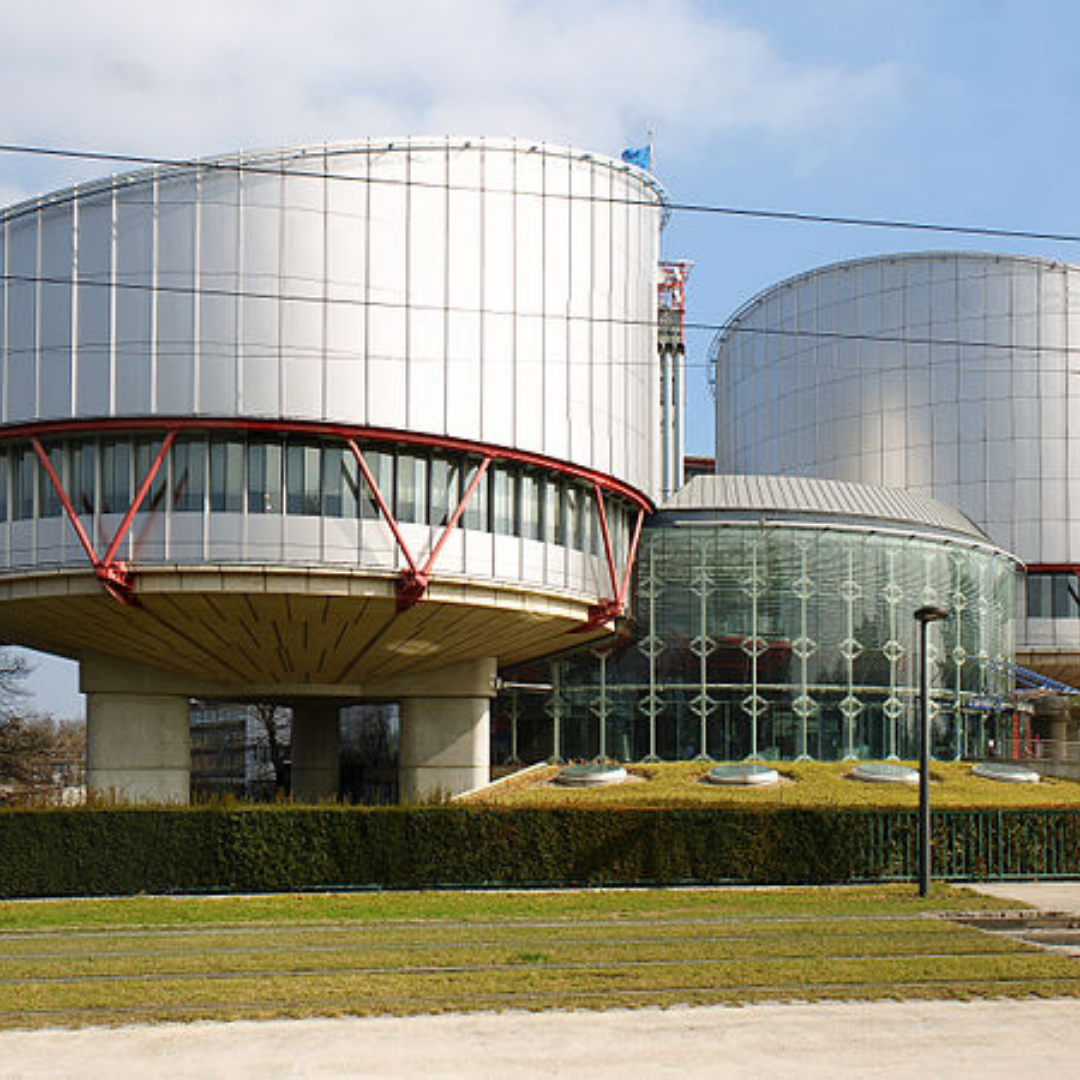
The rights of trans people in prison
(Application No. 63378/13), 10 June 2015
Find Court’s communication here.
Communicated case:
Submission:
- The case concerns a transgender prisoner, whose health was jeopardised by the prison authorities’ refusal to provide necessary medical treatment, including the continuation of hormone replacement therapy. The applicant complained about the absence of necessary medical treatment, the lack of an effective remedy and the conditions of her detention as a result of the authorities having disclosed the information about her gender reassignment surgery.
- ILGA-Europe together with TGEU, Coming Out and the European Professional Association for Transgender Health provided information on medical and legal standards for gender reassignment treatment, highlighting where such treatment is medically necessary, the consequences of interrupting hormone replacement therapy, and best practice in the provision of gender reassignment treatment in prisons. They also highlighted transgender persons’ vulnerability to abuse in prisons, and provided wider context of discriminatory attitudes towards transgender persons in Russia.